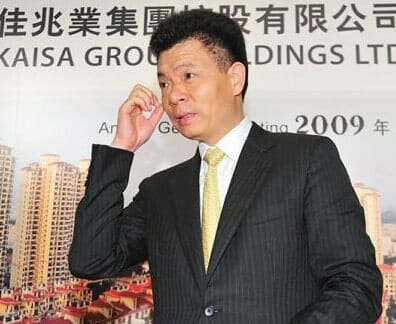
The yuan devaluation has some analysts worried that new Kaisa-style defaults could be on the way
The Chinese yuan has fallen as much as 4.67 percent in the last week, and while the sudden change has been cheered by China’s exporters, it could be bad news for the country’s heavily indebted property developers.
After trading at just over RMB 6.16 to the dollar last week, the yuan fell to as low as RMB 6.45 to the dollar before closing on Thursday at RMB 6.398 to one greenback. As many developers of mainland projects having raised capital on international markets in recent years, the sudden currency fluctuation could make those debts harder to service.
For real estate firms who are still struggling to clear existing inventory built up during the recent slowdown, China’s new currency volatility makes it more difficult to service bond obligations. With the memory of the January default of Shenzhen-based developer Kaisa Holdings still fresh in mind, should the yuan continue to slide, some analysts fear that new developer defaults could appear on the mainland.
More Than a Third of Developer Debt is Not in RMB
According to a research note by JP Morgan, an average of 38 percent of debt belonging to China’s property developers has been borrowed in foreign currency, and almost all of this foreign denominated debt has been in US dollars or Hong Kong dollars.
With the Hong Kong dollar pegged to the US currency, this means that the readjustment of the yuan against the dollar has just made the overseas debts belonging to Chinese developers 3.84 percent more expensive.
While cautioning investors not to be overly concerned over the effects of the currency devaluation, JP Morgan’s research team added that most Chinese developers do not hedge their US dollar exposure.
How Low Can You Go?

While first-tier cities are recovering, home sales nationwide are still disappointing
While China’s central bank on Thursday went to the extraordinary step of calling a press conference to to reassure the media and the markets that the currency devaluation was a controlled, “one-off” event, some analysts remain unconvinced.
At the media event People’s Bank of China Vice Governor Yi Gang said that reports of the bank planning to devalue the yuan by 10 percent against the dollar were “nonsense,” according to an account in the Wall Street Journal.
During the same presentation, however, Yi said that the bank would no longer attempt to “regularly” control the yuan and that the PBOC has switched to a less interventionist “managed floating-rate regime.”
This more hands-off approach by China’s central bank led JP Morgan’s chief China economist Haibin Zhu to raise the scenario earlier this week that the yuan could devalue further. While noting that there were other potential paths for the currency to take, Zhu said that, “Given the current market expectation, we expect CNY will depreciate in the near term in this scenario, and daily fixing will drift up until the market reaches balanced two-side volatility.”
Are Improving Sales Enough to Bail Out Troubled Developers?
While China’s housing market has been improving in the last few months, many developers are still struggling to dig themselves out from under the mountain of debt piled up in last year’s slowdown.
Ten percent more homes were sold in the first six months of 2015 than in the same period last year, however, when viewed year-on-year, home prices at the end of June were still down 5.4 percent compared to June of 2014. And in the most recent survey by the independent research firm China Index Academy, 53 out of 100 Chinese cities still reported falling average home prices.
With the revenue side of the equation still underperforming, more expensive debt will be bad news for some developers.
Less than one month ago, credit ratings agency Moody’s Investor Services pointed out that Evergrande Real Estate’s debt leverage – as measured by its adjusted debt as a percent of its capitalisation – will trend above 80 percent over the next 12 to 18 months.
Also swimming the deep end is Shui On Land, which built Shanghai’s iconic Xintiandi. During the past few months the Shanghai-based developer was forced to sell some of its most valuable office space, and to dispose of a five-star hotel to try to relieve some of its debt burden.
Also, in a chilling reminder of the Kaisa Holdings crisis that gripped China’s real estate world for the first four months of this year, Chinese developer Glorious Property Holdings was hit with a winding up petition last month after it failed to meet its obligations to a creditor. (The case was later resolved amicably).
Should China’s central bank be able to put the brakes on its currency slide today, then there is little chance of developers being felled by the extra 3.7 percent debt burden. However, should the devaluation continue, then some of the more indebted developers could start to come under financial stress.

Leave a Reply